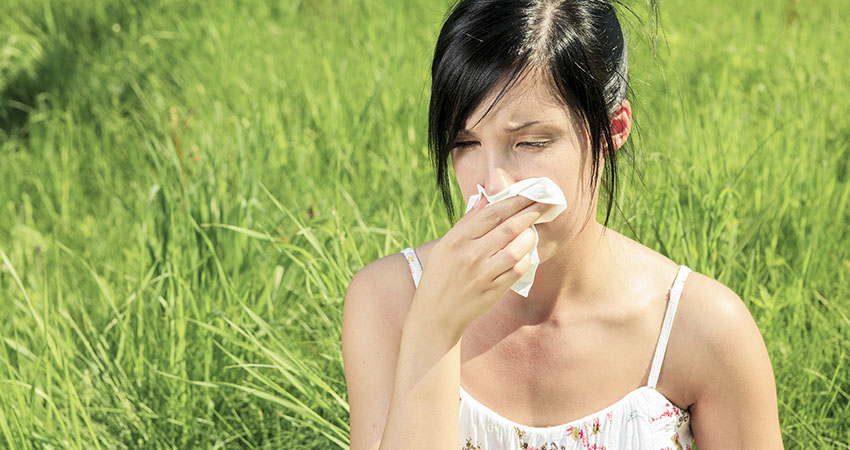Allergies are much more common today than ever. With the ever increasing environmental pollution, use of multiple fragrances and chemicals on a daily basis, and increasing fast food consumption, people today are experiencing allergic reactions much more than ever. With it, the queries of how to find allergy doctor are also increasing. Let’s go through a basic guide on what allergic reactions are, how to identify them and necessary treatment options to avoid them.
What Is An Allergic Reaction?
An allergic reaction is when the body’s immune system identifies foreign particles as harmful and generates an immune response against them. There is excessive production of histamine, a chemical that causes allergic symptoms such as sneezing, coughing and swelling. More frequently, the foreign body or particles are more or less harmless to the body.
What Are The Symptoms Of An Allergic Reaction?
Common symptoms of an allergic reaction to look out for are:
- Excessive sneezing and a runny congested nose (allergic rhinitis)
- Itchy, red watery eyes (conjunctivitis)
- Shortness of breath, with sudden tightness in the chest
- A red, raised often itchy rash characterized as Hives
- Swelling on any part of the face, such as eyes, lips, tongue and mouth
- Nausea and vomiting
- Diarrhea
- Rapid pulse and heart rate (in cases of allergic reaction to drugs)
Symptoms of Anaphylaxis/Severe Drug Reaction
- Swelling of the airways and mouth
- Difficulty in breathing
- Altered loss of consciousness
- Bluish discoloration of the lips and mucus membranes (cyanosis)
How To Treat Minor Allergic Reactions?
Most minor allergic reactions are completely harmless, and can be cured by over the counter medications. Let’s start with the common management of various allergic reactions:
Antihistamines
These drugs are the first line recommended drugs in the treatment of most allergic reactions regardless of the cause. These drugs inhibit the production of histamine and help alleviate symptoms such as sneezing and watery eyes.
The second generation antihistamines such as loratadine and cetirizine are less likely to cause symptoms of drowsiness compared to older antihistamines.
Antihistamines are available in a wide range of forms such as nasal sprays, oral pills, intravenous voiles, dissolvable tablets and eye drops.
People with seasonal allergies are urged to take antihistamines on a regular basis, when they know they will be exposed to the allergen.
Nasal Decongestants
Nasal decongestants are widely available both online and on pharmacies. They are indicated in the management of allergic reactions in the form of oral pills and sprays.
They work by reducing the quantity of mucus secretions and thus reduce symptoms of a congested stuffy sinus and help in expectoration.
Anti-Inflammatory Drugs
Non-steroidal anti-inflammatory drugs (NSAIDS) are occasionally used to help with the pain and swelling associated with an allergic reaction.
Avoid the Allergen
Seems pretty obvious, but this step is integral to properly preventing an allergic reaction in the first place. Identify the causative allergen first of all, it could be pollen, dust, animal fur, certain food products and medications.
Use a Saline Rinse
This is once again a very effective and affordable way to keep nasal allergies at bay. For starters, dissolve 3 teaspoons of salt and 1 teaspoon of baking soda in 8 ounces of filtered water. Mix thoroughly and bring the concoction to a boil. Use this saline mix as a saline rinse thrice a day or as needed. It’s that easy.
How To Manage Anaphylaxis?
In the event of anaphylaxis, you should call your nearest emergency extension and arrange for urgent transfer to an E.R. Usually a shot of epinephrine is curative in the event of anaphylaxis. Try to keep the person calm and collected, raise their legs above head level and maintain their breathing through a continuous supply of oxygen.
Treatment of Skin Allergies
Usually a dose of antihistamines, ice packing, application of emollients and moisturizers and over the counter corticosteroid gels can greatly reduce the inflamed reaction on the skin.
Treatment of Environmental Allergies
For environmental allergens, prevention is the key. Aside from that, allergy specialists Germantown recommend throat lozenges, oral antihistamines and proper showering sessions to remove the allergen such as pollen, dust or mold from the body is vital.









